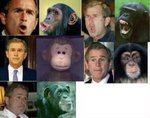- Thread starter
- #41
I agree with you that Kennedy wasn't that bad of a president102first_hussars said:Personelly I dont think he was such a bad president, a pussy, criminal of course (but he is a politician)
I think JFK's policy on Vietnam was split to appease the Hippies in San Francisco and to appease the "Silent Majority" he never had a straight answer on what is to be done about vietnam and I think thats what pissed alot of people off, he accomplished some amazing things for the U.S, such as the Moon Landing, his handling of the Cuban Missile Crisis, and if he was still alive at the time he would have been the one to sign the Civil Rights Act not Lyndon Johnson. I dont think JFK deserved to be assasinated, but it seems to me that alot of people seem to veiw JFK in the same way that canadians veiw Pierre Trudeau.
Now I dont know what you guys think about Clinton but I liked him, he is in my mind a somewhat perfected version of JFK, still cheated on his wife though.

